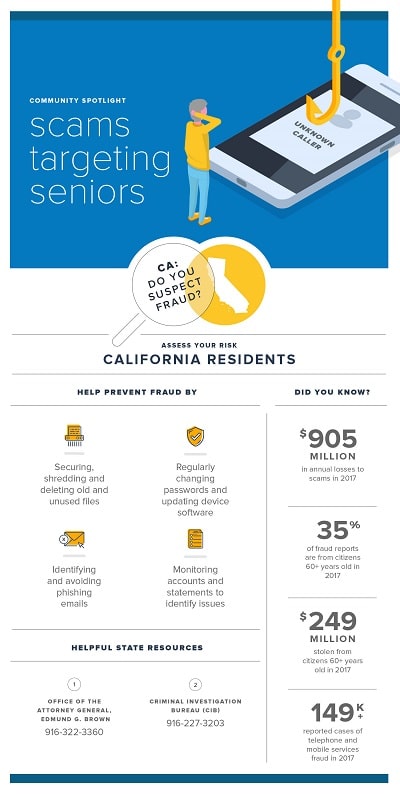by: Brent Scott
As a caregiver, you may be asked by your clients or their loved ones to help out during the Holidays. From shopping for gifts to wrapping and shipping, offering this assistance is a great way to brighten up the season. To make things safe and easy, we are sharing a few strategies both you and your client can use while preparing for the holidays.
In-Store Shopping Tips
- Don’t leave your client or bags, purses, or wallets unattended while shopping in-store. Shoplifters often look for elderly individuals who may be preoccupied or easily distracted in order to steal their belongings. When shopping this season, consider bringing a carabiner clip to attach your client’s belongings to their cart, mobility scooter, or being.
- Keep track of your client’s cash, cards, and receipts. It’s essential that caregivers help their client stay organized as it’s the best way to ensure nothing has been forgotten, stolen, or already purchased. After exchanging money, you should have your client confirm they got their change/credit card and receipt and watch them put it back in their wallet before moving to the next store.
Online Shopping Tips
- Avoid using public networks and shared wifi hotspots. Cybercriminals often seek out and hack public hotspots in order to monitor user activity. In some cases, it’s possible the information being stolen could contain a credit card number or other personally identifiable information. Therefore, it’s advised that less tech savvy seniors avoid public wifi at all costs.
- Help your client navigate the Internet. Pointing your client towards trusted online retailers and authentic websites is the easiest way to keep them away from potentially fake or hazardous sites that could introduce malware. Identifying an authentic site is made easier as most major e-commerce sites will state if they’re secured in the beginning of the URL. An SSL certification will denote the URL search bar with a lock and/or “s”, looking like this: “https://”. However, it’s just as important that your client is wary of suspicious emails from online retailers and delivery companies.
- If your client is an avid online shopper, suggest they print their receipts. Keeping both in-store and online receipts organized can help identify a potential scam or financial error.
- Remind your client to double check their receipts, financial statements, and credit card bills after shopping. Fraudsters love the holidays, as many individuals are too busy or unaware they could be shopping safer. Checking this information regularly is a helpful practice to avoid surprises, and in some cases, could even stop a potential issue before it happens.
Shipping & Deliveries
- Help your client keep a schedule for expected mail and deliveries. As they shop, or start hearing from distant relatives, have them write down a few things. The shipping or post date and estimated delivery date are great pieces of information to have. Preparing a schedule, even if inaccurate, can still help you plan ahead as you may be expected to sign for and bring in mail, packages, and deliveries.
New Technology and Devices
- As communication technology continues to evolve, so do the holiday gifts. Tablets and smart devices like Alexa make it easier than ever to communicate with long distance loved ones. Alexa is a great assistant for elderly individuals who live independently but still need help turning on/off lights, opening doors, or who need medication reminders. If you think your client would benefit from one of these devices, request the gifter set up the device for the user in advance to wrapping. If the device doesn’t come setup, you may be asked to help. Just follow the instructions, and if in doubt, watch a youtube tutorial.